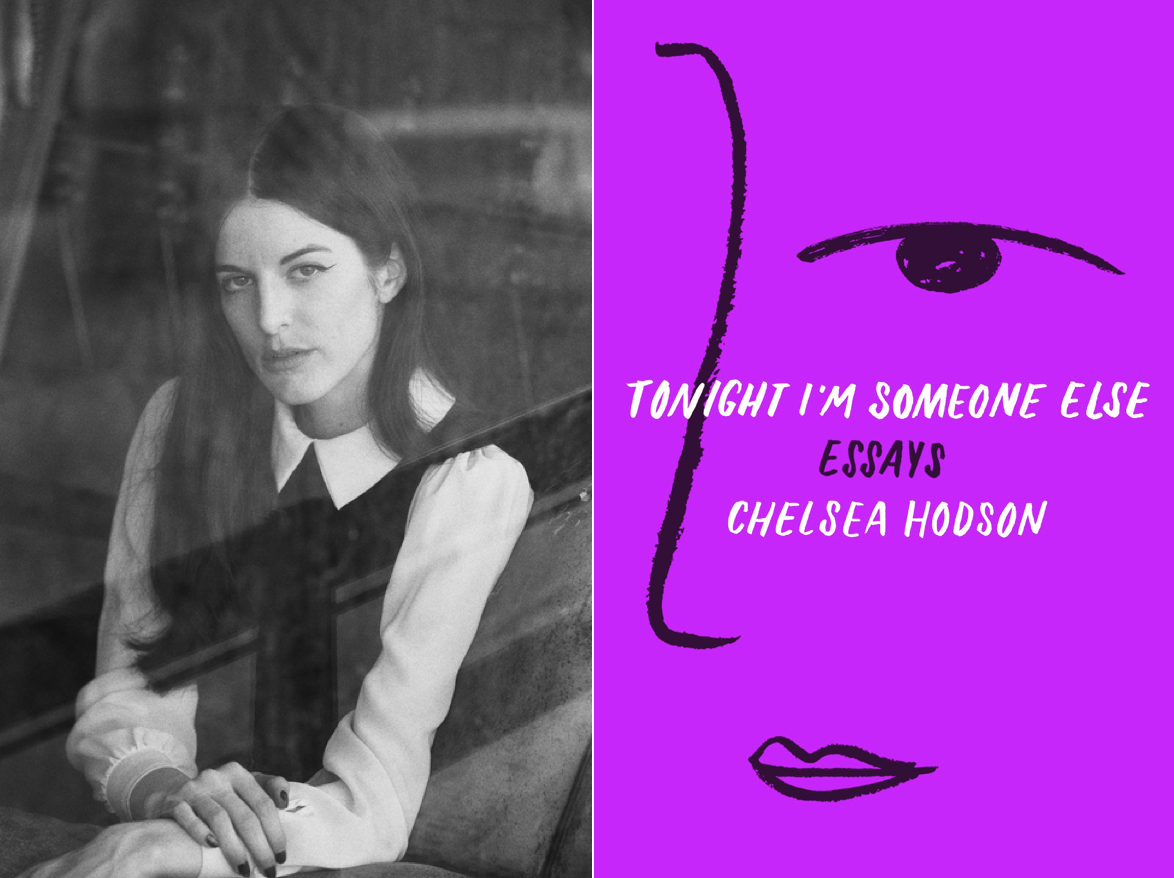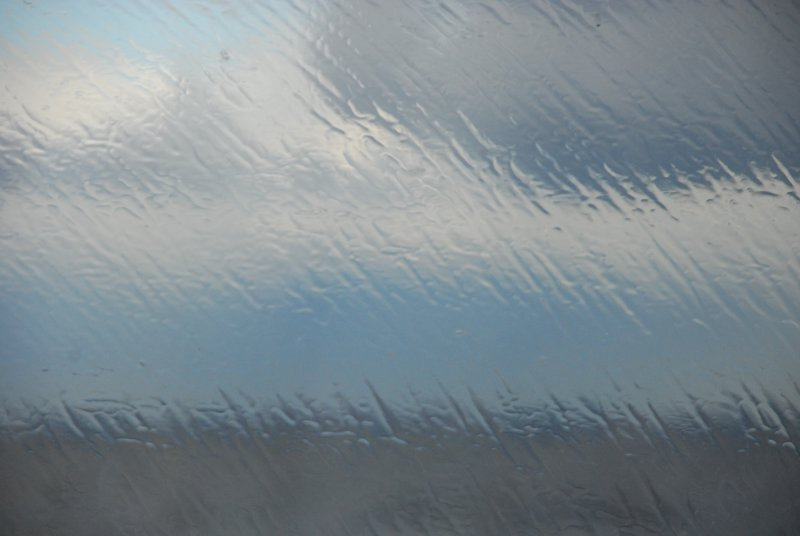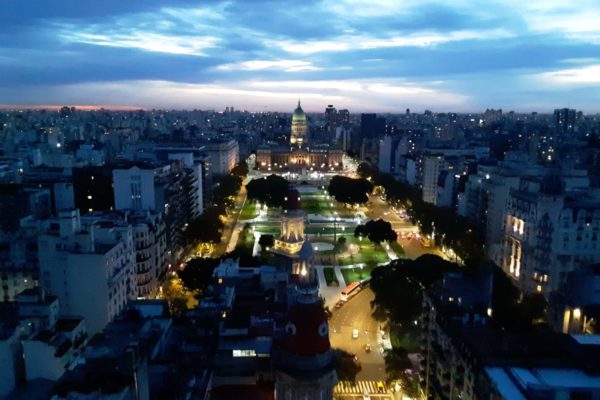In an interview with nonfiction MFA candidate Katie Shepherd, Chelsea Hodson speaks to writing from the self, interrogating ideas, and the joys and melancholies of life. Chelsea is the author of the book of essays Tonight I’m Someone Else and the chapbook Pity the Animal. Her writing has appeared in The New York Times Magazine, Frieze Magazine, Black Warrior Review, and elsewhere. She has been awarded fellowships from MacDowell Colony and PEN Center USA Emerging Voices and teaches at Catapult and Mors Tua Vita Mea.
I read through Tonight I’m Someone Else once rapidly out of a hunger for narrative and then a second time for a closer investigation of each sentence, as each one blooms with its own revelatory idea, allowing language to do a kind of work on its own. Your writing seems to be working on a balance between the two— story is happening but also idea is happening. How would you describe the place from which your writing emerges—idea, story or both?
Definitely idea—I always begin with something I’m excited about, whether that be a title, a first line, a last line, or a specific structure. But whatever I start with, I always end up changing it later—its role is just to get me going. I’m really glad that you saw idea happening simultaneously with story because I like writing that feels cinematic—I didn’t want my essays to feel like they exist solely in my head. I think creating an atmosphere is most effective for that—the lighting, the weather, the music—and then, from there, language follows, and hopefully a kind of narrative that propels a reader forward.
You refer to how writing helps you understand the impact art has made in shaping your sense of self, and yet so many of your stories are rooted in the day-to-day. What writing or art or day-to-day is of interest to you lately?
I’m currently reading a two-part biography of Elvis Presley that a friend recommended to me after I felt like I was becoming weirdly obsessed with Elvis. I’ve never been a huge fan of him, and suddenly I found myself wanting to know his life story. It must be related to some kind of escapism for me—when I read about him living in the 1950s, I momentarily forget the present day in which I live.
Much about this book is about desire, more specifically your desire which is rooted in the female experience. In Artist Statement you write, “I hate writing us, but that’s where I am: desperate times call for desperate ways to speak to everyone.” What makes this collection so refreshing is that it stays close in your desires, your experiences being desired and your unfulfilled desires. Can you speak to the ways in which a female writer positions herself into simultaneously embracing her identity while also trying to subvert it or evolve from it some way (if you think that is true)? Do you think female writers (or any writer) should tell the truth or should feel the responsibility of influence regarding their audience?
Well, I’ll begin this answer by saying I never approach an essay by thinking about what I can say as a “female writer.” I am only interested in examining the sadness of being human (which I think often has to do with longing), and of course that comes out through my specific lens, but I only think of myself as a “female writer” when other people remind me that’s what I am. I never consciously make an effort to subvert or embrace that identity or any other identity—I am only interested in writing clearly and concisely. In “Pity the Animal,” I definitely present things that have to do with gender—for instance, how the window displays in stores in previous decades were marketed to men versus how they were marketed to women. However, I see that essay as a meditation on submission and power, not necessarily on gender. Other people have thought otherwise, and I think that speaks to how much a text can change based on who is reading it and what that person wants from an essay. If they want it to be an essay about women’s desires, I think they can read it that way, but my original intention was different from that.
Often female desire is tied up somehow with shame— shame to want the punch, want the gaze while also understanding the oppression of it, in which the body is used and then wants to be used. In a time in which women must radically love themselves, stuffing down their shame in effort to establish their own sense of self-truth (in order to be seen/heard), do you think the work of writing is less about finding answers that lead to some moral conclusion and more about exploring the complexities of how the female upbringing (in the American narrative) includes being able to hold several truths about oneself and desires?
I have no interest in moral conclusions. Complexity and ambiguity is always what I’m after, because isn’t that life? And I don’t write about “the female upbringing,” I write about my upbringing. Every life is filled with contradictions and desires, but I don’t think mine was necessarily shame-based. I didn’t see my book as confessional necessarily—I just saw writing about one’s life as a way to interrogate ideas. That’s the kind of art I’m always interested in—that which is so specific and clear that it reveals something to the audience about their own life.
You write a great deal about the ways in which men have informed you, about how love and lust have shaped both a desire to be seen and unseen. In Halfway Out the Door, you write, “The only thing worse than hearing your voice at its most desperate is recognizing it.” Were you trying to get at the ways in which stories (in many cases, men) reflect back to us becoming something we internalize as truth about ourselves? What is it about wanting, desiring, that presents something interesting and exhausting, even selfish?
The opening paragraph of that essay goes: “I return to memories of the people who taught me something, even accidentally. I love them, not for who they are but for the ways in which they altered me. In this way, my love for them becomes a love for my own deterioration.” I think this explains a lot about the book—the idea that love, in hindsight, becomes a tool for understanding myself better. That is a pretty selfish thought, and yet it’s how I’ve coped with losing people, and it’s my own way of honoring their presence, however briefly, in my life. Desire is about wanting, so to write about desire is to start with an investigation: what is that I even wanted? It’s not as easy as saying, “I wanted him.” It’s always something sadder or more complicated than that.
I was a HUGE Hanson fan growing up (and a Taylor fan, too), though I was more of a NSYNC kid, not Backstreet. In I’m Only a Thousand Miles Away, I started to think about the ways in which our capitalistic, celebrity-drive society encourages young people to develop a kind of objectification or even projection of romance or connection to “stars” that bleeds across to day-to-day life, for better or worse (I also felt this came up in Pity the Animal but in a much more brutal way). There is something in your writing about youth, female youth, that places boys as something to long for and understand, while also understanding that the feeling you receive in return is a mix up of excitement and fear. What is it about this idea that interests you?
Well, in terms of boy bands, the band members are presented as objects that can be bought: CDs, posters, concert tickets. The idea of commodifying a body is a theme that runs throughout my book because it seems to me to be the underlying theme of America: don’t just sell your skills and your time, sell your entire body, and, for the biggest chance at fame, sell your soul. However, in that essay in particular, I brought in the Backstreet Boys story to show how rabid and obsessive a teen girl can be. That essay ends with a kind of stalker situation I experienced, but, when isolated, that story is really one-dimensional: man equals predator, girl equals prey. I guess that’s an interesting story to some people, but I didn’t see those definitions as complete. I wanted to acknowledge a time when that role was reversed: when I was watching a celebrity so closely that I felt I was actually getting closer to him. By pairing these stories together, I think the essay becomes a meditation on what looking at someone does to both the watcher and the watched, instead of just a story about a woman feeling threatened.
Have you always felt like an acute observer? What are the ways in which you balance the observational, removed self and the very-much-connected-to-others/community self?
I wouldn’t say I’ve always felt like an acute observer, but I’ve always been content being alone, and I can’t remember ever feeling bored. Even in relationships, I can be kind of a loner, and I don’t need to see my friends every week to feel connected to them. Like anything, I think it’s a matter of balance. Having a great one-on-one conversation lifts my spirits after being alone with my work all day, but I also am content doing nothing but reading, writing, and walking. As I wrote about in my book, I’ve even experienced “endurance training” by a performance artist I worked for, which involved things like staring at a wall for hours at a time. If you don’t feel bored doing that (I didn’t), I think it’s just not something you feel.
Is one way of looking at the title, Tonight I’m Someone Else, to accept that there is a way in which all human beings share fundamental desires that go on to manifest in different ways of wanting?
I think there’s many ways to interpret the title, but I see it as much more simple: the desire to act like you’re living a life that belongs to someone else, even just for one night. The line in the book that it comes from is, “Tonight I’m someone else, I’m using abandonment as a reward for work.” That, to me, is a way of acknowledging the discomfort of doing the same thing over and over again— I think the desire to escape is very human. Life is sad, and sometimes I’ve thought, maybe that life over there isn’t so sad. Maybe if I had more money, lived somewhere else, got a new job. But of course it’s the same. “Tonight I’m Someone Else” represents to me both the joy of being outside of one’s own life, even for a moment, and also the melancholy of knowing it wouldn’t be any different.




